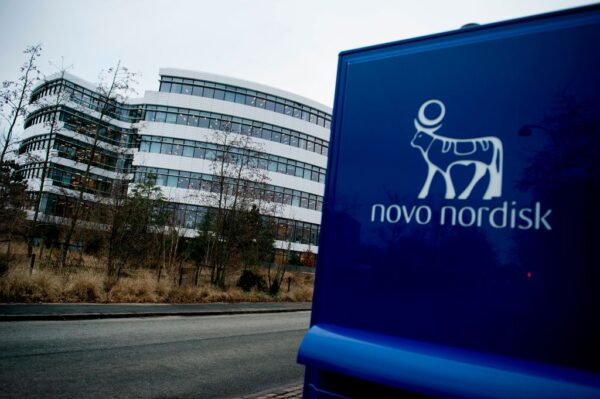
A next-generation Novo Nordisk obesity drug designed to hit two targets has preliminary clinical data showing 22% weight loss, results that suggest the once-weekly injection could have an edge over the company’s main metabolic medicines rival, Eli Lilly.
The drug, amycretin, is a peptide designed to bind to and activate both the GLP-1 and amylin receptors. Novo Nordisk is developing the molecule for the treatment of obesity and type 2 diabetes, testing both injectable and oral formulations. The results announced Friday are from a Phase 1b/2a study evaluating amycretin administered as a once-weekly subcutaneous injection in 125 patients with overweight or obesity. The proof-of-concept portion of the trial assessed escalating doses for up to 36 weeks.
The 22% weight loss reported in the study was for the highest dose: 20 mg weekly for 36 weeks. The results reported by Novo Nordisk also show that participants who received a placebo experienced weight gain, which is unusual for an obesity study. Regarding amycretin’s safety, the company said the drug’s profile was consistent with other therapies that mimic gut hormones. Gastrointestinal complications are common with these therapies, and Novo Nordisk said most such events in the trial were mild to moderate. The company offered no additional detail.
Novo Nordisk is taking multiple shots on the goal of developing a next-generation obesity drug. CagriSema, for example, combines semaglutide, the main pharmaceutical ingredient in the company’s approved obesity med Wegovy, with another engineered peptide called cagrilintide. Novo Nordisk last month reported this once-weekly injection achieved statistically significant weight loss in a Phase 3 study, but those results were below investor expectations. Based on the encouraging early results from the amycretin study, Novo Nordisk said it is planning further clinical development of this drug candidate in adults with overweight or obesity.
Comparing drugs across clinical trials has limitations, but acknowledging those caveats, analysts see the preliminary amycretin data as supporting Novo Nordisk’s competitive position versus Eli Lilly’s next-gen obesity medications. In a note sent to investors, William Blair analyst Andy Hsieh said the highest amycretin dose tested appears to slightly outperform retatrutide, an experimental Lilly drug designed to hit three targets. But Hsieh also flagged the average weight increase observed from participants who received a placebo, which could have improved the average weight loss magnitude for amycretin by 4.5% to 5.0%. Furthermore, the company did not say how many patients discontinued the study drug in the clinical trial. The results were based on those who adhered to treatment, which Hsieh said has the potential to inflate the treatment effect in the real-world setting.
The lack of detailed safety data was a sticking point for Leerink Partners analyst David Risinger. Though initial results for oral amycretin reported last March showed strong weight loss results at 12 weeks, the presentation of more detailed data at the European Society of Diabetes meeting last September showed high rates of nausea and vomiting — higher than Lilly’s Zepbound in its pivotal study.
“We thus await detailed results from [Novo Nordisk’s] injectable amycretin trial at a medical conference this year to better assess the drug’s full profile,” Risinger said.

The Power of One: Redefining Healthcare with an AI-Driven Unified Platform
In a landscape where complexity has long been the norm, the power of one lies not just in unification, but in intelligence and automation.
Photo: Liselotte Sabroe/Scanpix Denmark/AFP, via Getty Images








